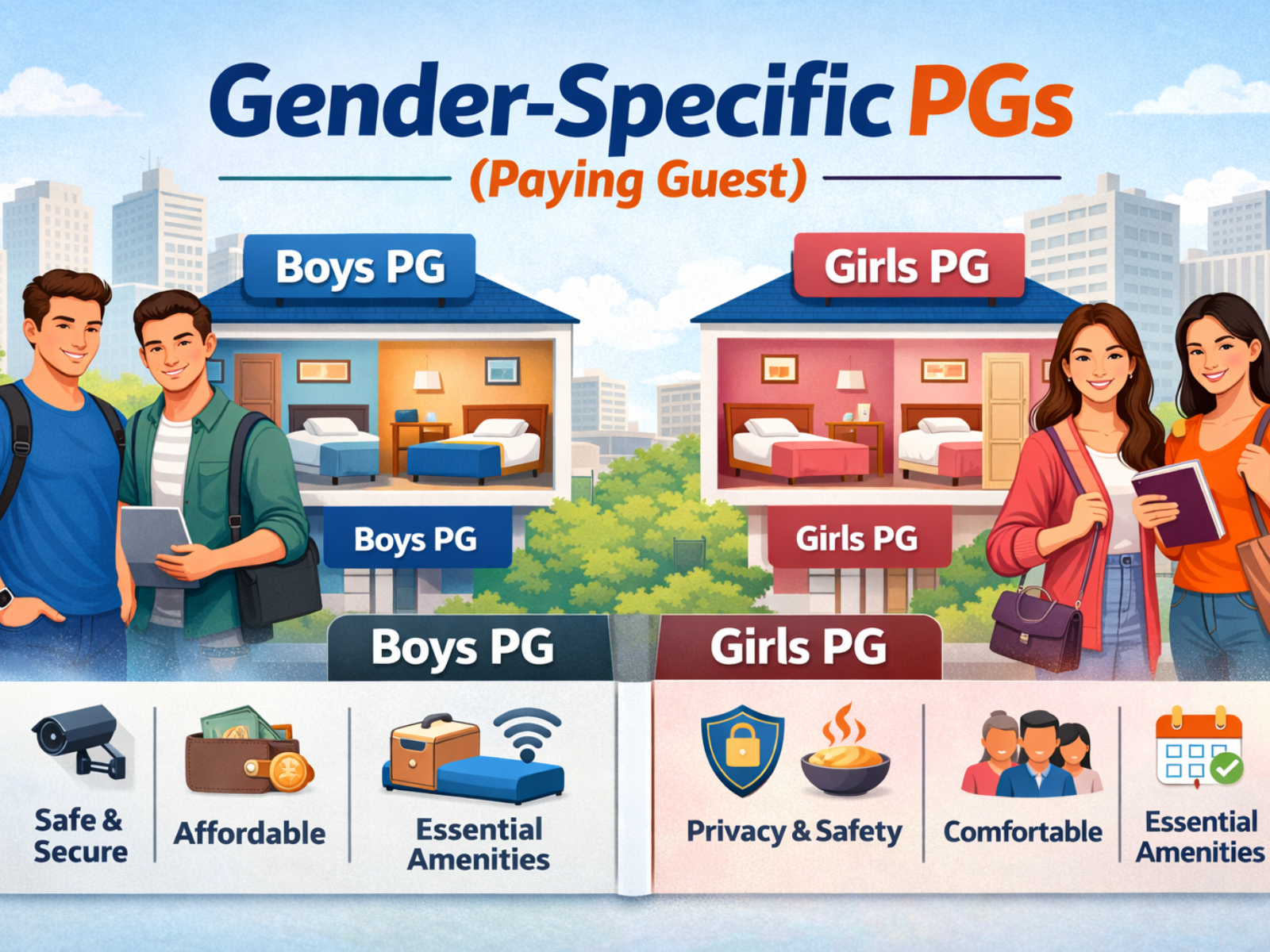
Paying Guest (PG) accommodation is a popular choice for students, working professionals, and individuals who prefer a cost-effective and hassle-free living arrangement. However, many PG tenants are unaware of their legal rights, which can leave them vulnerable to exploitation by landlords or property managers. Understanding your rights as a PG tenant will help you secure a fair and peaceful stay.
In this guide, we will explore the key legal rights of PG tenants, including rent agreements, eviction policies, security deposit rules, and more.
1. Right to a Written Agreement
A written rental agreement is the foundation of a fair PG stay. Even though PG accommodations often operate informally, a written agreement protects both the tenant and the landlord from future disputes.
Key elements a PG rental agreement should include:
-
Monthly rent and payment terms
-
Security deposit amount and refund policy
-
Duration of stay and renewal conditions
-
House rules and guest policies
-
Notice period for vacating the premises
Without a written agreement, it becomes difficult to prove terms in case of a disagreement. If your landlord refuses to provide one, insist on it for your own security.
2. Right to a Safe and Habitable Living Space
As a PG tenant, you have the right to live in a clean, safe, and hygienic environment. Your landlord must ensure that the accommodation meets basic living standards, including:
-
Proper ventilation and lighting
-
Clean drinking water
-
Functional electrical and plumbing systems
-
Pest-free premises
-
Fire safety measures
If these conditions are not met, you can request necessary repairs. If the landlord refuses, you may escalate the issue to local authorities or a consumer rights forum.
3. Right Against Unjustified Eviction
A PG owner cannot force you to vacate the premises without valid reasons. The eviction process must comply with the terms mentioned in the rental agreement. Typically, a landlord must provide a reasonable notice period (usually 30 days) before asking a tenant to leave.
Unlawful eviction practices include:
-
Forcing tenants out without notice
-
Changing locks without informing the tenant
-
Harassing or threatening tenants
-
Cutting off essential services like water and electricity
If you face an unfair eviction, you can file a complaint with the local rental authority or seek legal assistance.
4. Right to Fair Rent and Security Deposit Refund
Rent Regulations
A landlord cannot increase the rent arbitrarily during the agreed rental period. Any rent hike must be in accordance with the terms stated in the agreement or follow local rental laws.
Security Deposit Rules
PG owners typically ask for a security deposit, which is refundable when you vacate. However, some landlords unfairly deduct large amounts or refuse to return the deposit.
Legal safeguards for tenants:
-
The deposit amount should be reasonable (usually 1-3 months' rent).
-
Deductions should only be made for actual damages (not normal wear and tear).
-
The landlord must return the deposit within the agreed period after you leave.
If the landlord refuses to refund the deposit, you can send a legal notice or take the matter to a consumer court.
5. Right to Privacy and Freedom from Harassment
As a PG tenant, you have the right to privacy, even though you are renting a shared space. Your landlord or PG manager cannot:
-
Enter your room without prior notice or permission
-
Search your belongings without consent
-
Monitor your personal activities without a valid reason
If you experience harassment from the landlord, other tenants, or PG staff, you can file a complaint with the local authorities or seek legal action.
6. Right to Basic Amenities and Uninterrupted Services
PG tenants must receive uninterrupted access to essential services, including:
-
Electricity
-
Water supply
-
Internet (if included in rent)
-
Clean common areas
Landlords cannot deliberately cut off these services to force tenants to vacate. If this happens, you can report the issue to local authorities or consumer protection forums.
7. Right to Raise Complaints and Seek Legal Help
If your PG landlord is violating your rights, you have the legal right to raise a complaint. You can take the following steps:
How to Resolve PG Accommodation Disputes
-
Communicate First: Try discussing the issue with the landlord or PG manager.
-
Send a Formal Notice: If the issue persists, send a written notice (email or letter).
-
Approach a Local Authority: Contact the local rental authority or municipal office.
-
File a Consumer Complaint: If the landlord refuses to comply, you can file a case in a consumer court.
Conclusion
Living in a PG can be a convenient and affordable option, but it’s essential to know your legal rights as a tenant. Having a written agreement, ensuring fair rent practices, securing your privacy, and knowing your rights against eviction will protect you from exploitation. If you ever face issues, do not hesitate to take legal action.
By staying informed, you can ensure a safe and comfortable PG experience while holding landlords accountable for fair treatment.
Related Blog








